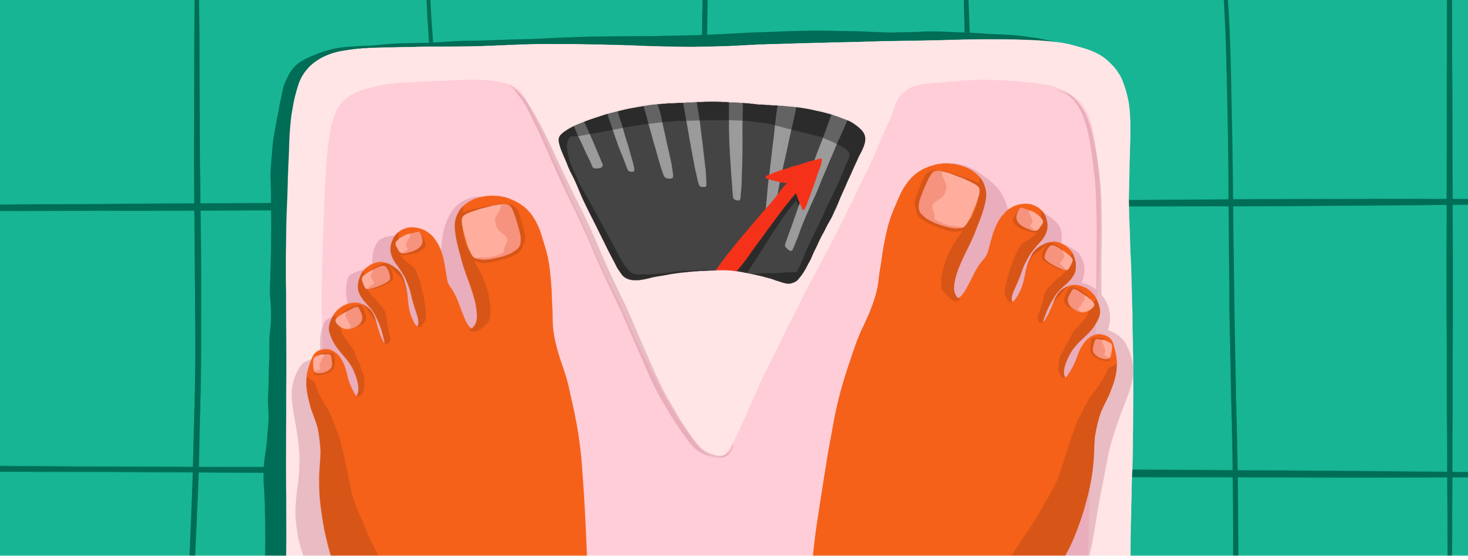Weight Gain And Ankylosing Spondylitis
I used to always be a "skinny minny." I never once thought about my weight until I turned about 26. My Sicilian grandmother would say, Mangia, you're too skinny, and I'd feel pressured to eat her plates of pasta as if my parents weren't feeding me. I got used to living in a thin body. The idea of weight gain never occurred me, and I never felt like I had "weight" issues to deal with. I had thin privilege, period. No one ever bullied me, used exotic terminology to describe me ("you're like a femme fatale" or "you're curvy" or whatever).
The fact is, I'm 5'9, so weight sits on me differently. It doesn't "show" as easily, but it's there. Around the age of 25, I started gaining more weight and got clued in pretty quickly to the reality of weight gain. The fact is, people, love to make comments about weight, curves, and size — and mass clothing stores like H&M and Zara stop catering to you once you reach a size 10 or 12, which is basically an XL, or have a 40 plus inch hip. Period. I'm a 10. I can't imagine what people in the size 14-plus range go through to find cute, fashionable clothing.
Don't be quick to judge
More so, when you're not in a "straight size" category, you feel the pressure. You feel eyes. You feel othered. People ask if you have PCOS or diabetes, or some sort of problem eating. Some people do, though. Trauma, lack of awareness of food, socioeconomic standards, emotional eating — there are so many things that play into weight, which is why we shouldn't be quick to judge or condemn. Not to mention that extra weight doesn't make you bad.
And again — I am on the thin privilege end of the spectrum, so I fully acknowledge that people who wear larger sizes go through worse.
Ankylosing spondylitis did cause me to gain weight
That said, when I started experiencing my first symptoms of AxSpA, and especially after it got worse, I gained weight. And it stuck. I went from a size four to a 10 or 12 — which took getting used to. I still struggle, but not often. I choose self-love, recognizing that this is nonlinear, imperfect, and a hard road for many.
I gained weight from inactivity. From feeling stiff, immobile, and exhausted by debilitating, relentless fatigue. There is a lot of evidence that inflammation causes weight gain, too — and I'm positive that this was the culprit behind my weight gain. A 2019 study shows that when C-reactive protein (an inflammatory marker) increases, weight increases as well. This is due to hormones and metabolic changes. There's a lot to it.
Movement helps
I do notice that the more I move, the more I lose weight. It's not a lot, but it happens—and this helps when my joint pain becomes unbearable. The more weight I carry, the more my body hurts.
I don't believe that anyone (including myself) is worse off because of weight gain. I think all bodies are equal and beautiful. It is really hard to deal with weight-gain related psychological issues as well as the physical issues, but it's natural, normal, and something, as AxSpa patients, that we deal with.

Join the conversation